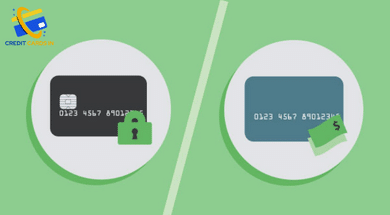Comparing Eligibility for Credit Cards and Digital Cards: Key Differences
When applying for financial products like credit cards or digital cards (also known as virtual cards), understanding the eligibility criteria is crucial. These criteria can vary significantly between traditional credit cards and digital cards, influencing your chances of approval and the benefits you can enjoy. This blog post explores the key differences in eligibility requirements for credit cards and digital cards, helping you identify which option may suit your financial needs best.
Eligibility For Credit Cards: What You Need to Know
Credit card eligibility often depends on several standard factors assessed by banks and credit card issuers to determine an applicant’s creditworthiness.
Key Factors
- Credit Score: A high credit score is crucial for credit card approval. It indicates to lenders that you are a low-risk borrower.
- Income Level: Applicants must meet minimum income requirements, which vary by card. Higher-tier cards with more benefits typically require a higher income.
- Employment Status: Being employed or having a stable source of income is essential. Some premium cards may also require you to be employed in a specific sector or job type.
- Age: Generally, you must be between 18 to 70 years old to qualify for a credit card.
- Residential Status: Credit card issuers may require you to be a resident of the country where the bank operates.
Additional Considerations
- Credit history and past relationship with the financial institution can also play a role in the eligibility for a credit card.
Digital Card Eligibility: A Simpler Approach?
Digital cards, which include virtual cards issued alongside physical credit cards or standalone digital-only cards, often have more relaxed eligibility criteria compared to traditional credit cards.
Key Factors
- Age and Identity Verification: Digital cards may only require basic identity verification and proof that the applicant is over the legal age for contractual agreements.
- Bank Account: Having a bank account might be necessary, though it doesn’t always need to be with the issuing institution.
- Credit Score: For digital cards that function as credit cards, a credit score might still be checked, but the requirements may not be as stringent.
- Location: Some digital card services are only available to residents of certain regions or countries, depending on the service provider’s operational area.
Additional Considerations
- Digital cards linked to a credit account might still require proof of income, but those functioning more like debit cards typically do not.
Comparing Eligibility Criteria: Credit Cards vs. Digital Cards
Simplified Application Process
- Digital Cards: Often boast a quicker, more streamlined application process. In many cases, you can apply and be approved within minutes, especially for prepaid or debit-linked virtual cards.
- Credit Cards: The application process can be more rigorous, involving detailed checks of your credit history, income verification, and more.
Accessibility
- Digital Cards: Generally more accessible, especially for younger users or those with lower incomes or less established credit histories.
- Credit Cards: Target a demographic that can reliably meet higher credit standards and often reflect a broader financial relationship with an institution.
Also Read: SBI SimplyCLICK Credit Card vs IRCTC SBI Platinum Credit Card: Which is Right for You?
Conclusion
Choosing between applying for a traditional credit card or a digital card will largely depend on your financial situation, needs, and what you qualify for based on the eligibility criteria. If you’re looking for a robust financial tool with rewards and credit-building capabilities, a traditional credit card might be the right choice. However, if you need quick access to a secure payment method with fewer eligibility hurdles, a digital card could be the ideal solution.





